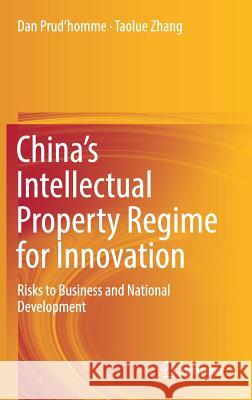China's Intellectual Property Regime for Innovation: Risks to Business and National Development » książka
topmenu
China's Intellectual Property Regime for Innovation: Risks to Business and National Development
ISBN-13: 9783030104030 / Angielski / Twarda / 2019 / 237 str.
Kategorie:
Kategorie BISAC:
Wydawca:
Springer
Język:
Angielski
ISBN-13:
9783030104030
Rok wydania:
2019
Wydanie:
2019
Ilość stron:
237
Waga:
0.53 kg
Wymiary:
23.39 x 15.6 x 1.6
Oprawa:
Twarda
Wolumenów:
01
Dodatkowe informacje:
Wydanie ilustrowane











